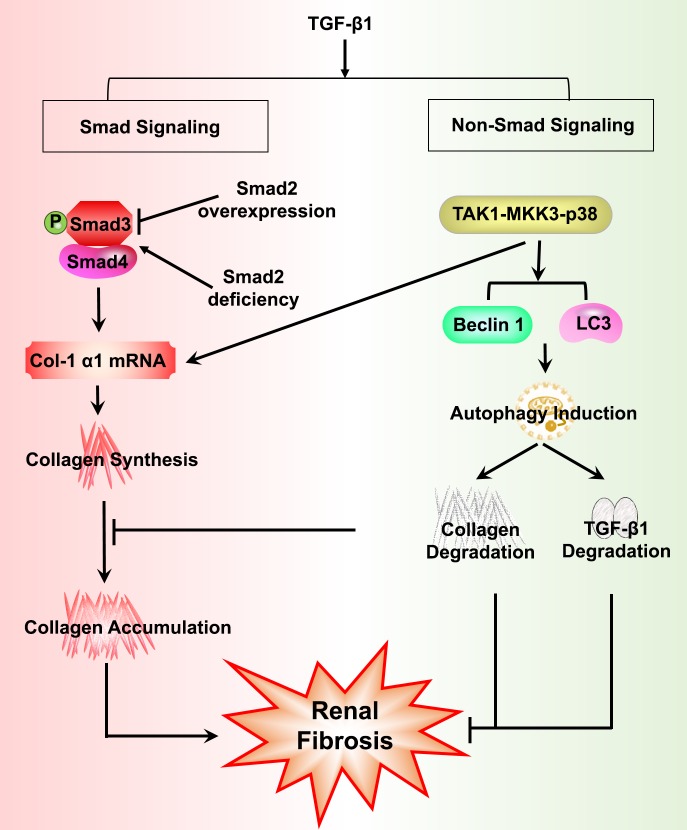Fig. 3.
An overview of profibrotic and protective pathways of TGF-β1 signaling. Activation of TGF-β1 in response to kidney injury can signal both profibrotic and protective effects via Smad and non-Smad signaling pathways. Overexpression of Smad2 attenuates TGF-β1-induced Smad3 phosphorylation and type I collagen (Col-1α1) expression, whereas inhibition of Smad2 promotes renal fibrosis via enhanced TGF-β1/Smad3 signaling. TGF-β1-induced autophagy negatively regulates TGF-β1-stimulated collagen accumulation in the kidney by promoting collagen degradation. Autophagy also negatively regulates mature TGF-β1 expression, thereby protecting against kidney fibrosis.

